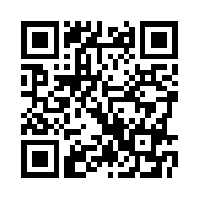Abstract
This article deals with the question if and how far religious points of view and messages of churches involved matter in the analysis of the roots of the present global economic crisis, and even more in the discussion about how to overcome the crisis itself. Economic experts such as Stiglitz point to the presence of factors such as greed, fear and utmost selfish behaviour. It inevitably leads to the ethical, but in fact also the religious question of how far people, especially economic agents, can go in the pursuit of their own economic interests without doing harm to others. Jesus asked his disciples to follow him: with Bonhoeffer, we could call that a Way-orientation. Where and how far can a conflict therefore arise between human goal-orientations, on the one hand, and a biblical Way-orientation, on the other hand? And is it indeed relevant when considering our present economic crisis? This article defends the last position, describing some categories (such as the choice of ultimate meaning, the sacro-sanctity of chosen instruments, and the demonisation of opponents) which indicate that the borderline has been passed between responsible and irresponsible goal-orientations. The glorification of greed and the delegation of ultimate power to financial markets indicate that at this moment elements of idolatry (or the obedience to Mammon) are at hand. They are also aggravating the present economic crisis. This implies that returning to the choice for decisive normative Way-orientations in economic life is possibly the only true way out of the present economic crisis.Copyright information
- Ownership of copyright in terms of the Work remains with the authors.
- The authors retain the non-exclusive right to do anything they wish with the Work, provided attribution is given to the place and detail of original publication, as set out in the official citation of the Work published in the journal. The retained right specifically includes the right to post the Work on the authors’ or their institutions’ websites or institutional repositories.
Publication and user license
- The authors grant the title owner and the publisher an irrevocable license and first right and perpetual subsequent right to (a) publish, reproduce, distribute, display and store the Work in any form/medium, (b) to translate the Work into other languages, create adaptations, summaries or extracts of the Work or other derivative works based on the Work and exercise all of the rights set forth in (a) above in such translations, adaptations, summaries, extracts and derivative works, (c) to license others to do any or all of the above, and (d) to register the Digital Object Identifier (DOI) for the Definitive Work.
- The authors acknowledge and accept the user licence under which the Work will be published as set out in https://creativecommons.org/licenses/by/4.0/ (Creative Commons Attribution License South Africa)
- The undersigned warrant that they have the authority to license these publication rights and that no portion of the copyright to the Work has been assigned or licensed previously to any other party.
Disclaimer: The publisher, editors and title owner accept no responsibility for any statement made or opinion expressed by any other person in this Work. Consequently, they will not be liable for any loss or damage sustained by any reader as a result of his or her action upon any statement or opinion in this Work.
In cases where a manuscript is NOT accepted for publication by the editorial board, the portions of this agreement regarding the publishing licensing shall be null and void and the authors will be free to submit this manuscript to any other publication for first publication.
Our copyright policies are author-friendly and protect the rights of our authors and publishing partners.

